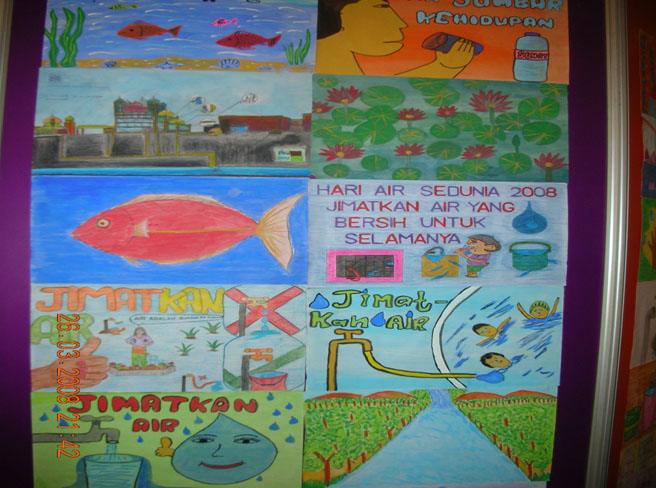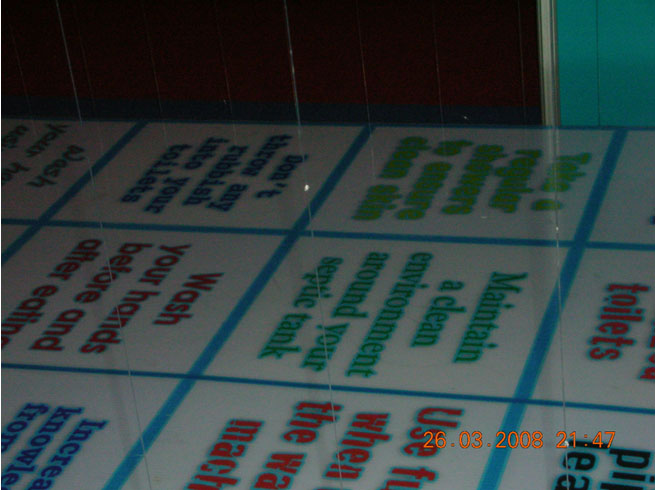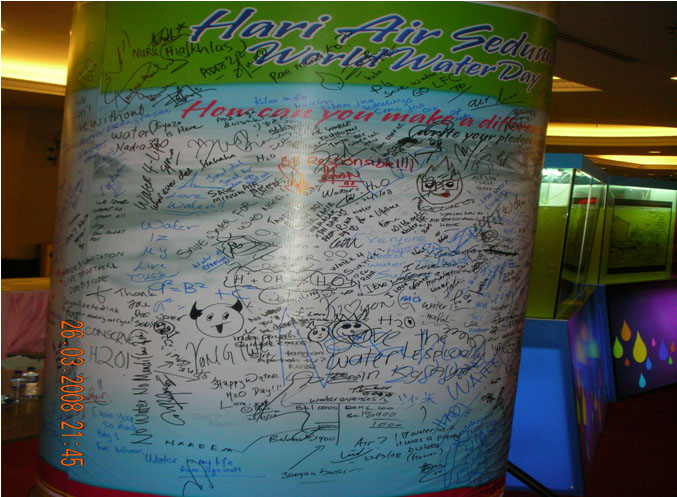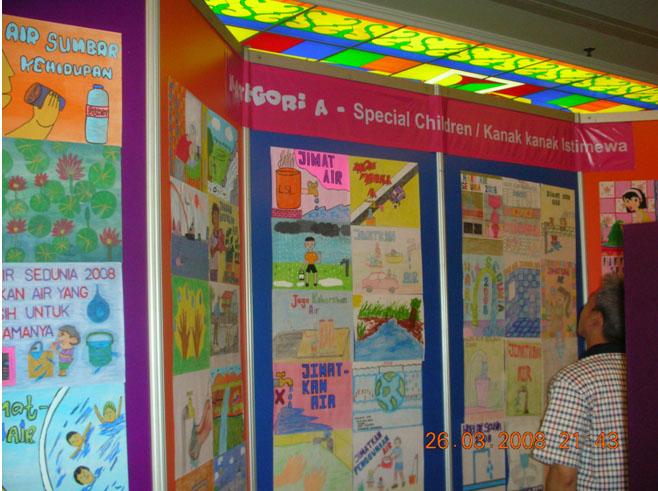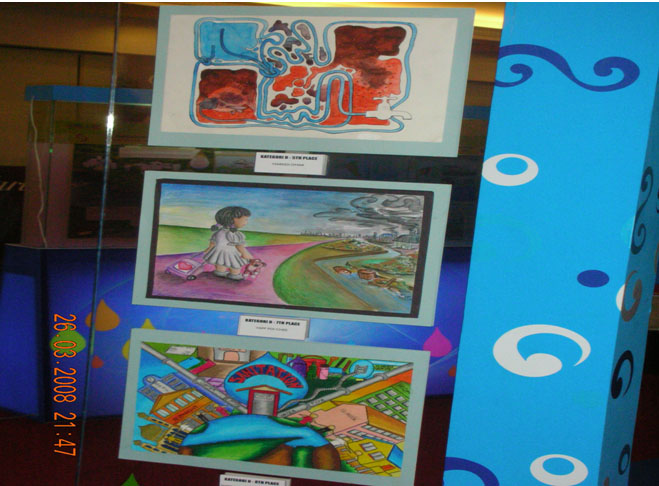Report on Integrating HVWSHE Teaching-Learning Materials in Brunei Darussalam:
Assessment of country experiences
By
Hajah Marzidah binti Haji Majid
Isma Fazlina binti Haji Ismail
Introduction
- National Echo Training of Teachers on HVWSHE-Integrated Lessons
- 24th, 25th, 30th & 31st October 2007
- 32 participants:
- 16 from 8 QEE primary schools
- 16 from 4 secondary schools
- 16 from 8 QEE primary schools
- teachers teaching English, Mathematics, Science & Geography
- develop HVWSHE-integrated lesson plans and materials
- 24th, 25th, 30th & 31st October 2007
- develop a standardized water use observation checklist to assess students’ change of behaviour in their water usage
- As a follow-up of the training:
- Pilot testing
- primary schools involved primary 6 pupils.
- conducted from 5th November – 15th November 2007
- conducted from 5th November – 15th November 2007
- Secondary schools involved Form 1 students
- carried out their pilot testing from January to March
- carried out their pilot testing from January to March
- primary schools involved primary 6 pupils.
- Pilot testing
- Data from pre- and post attitude test, the observation checklist and the assessment of the knowledge components of HVWSHE integrated lessons were compiled for analysis.
- The HVWSHE integrated lesson plans developed by the participants were to be compiled and distributed to the participating schools
Extent of HVWSHE adoption
- Implementation
- project schools
- Selected subjects: English, Geography and Science
- School Curriculum - centralised
- Human values have been integrated and implemented since 1980s
- Not much changes or innovation
- SPN 21 emphasizes on integration of Human Values across the curriculum
Feedback from teachers
- Most of the teacher participants perceived that the workshop was a success.
- Almost all of them were satisfied with the content of the workshop.
- After the workshop, teachers felt that they had a change in their behavior towards good water–use ethics.
- Some teachers suggested that HVWSHE should be integrated into other subjects such as Bahasa Melayu, contents to be widened and that more time to be given to teachers to prepare for their lesson plan.
Feedback from students
- During observation made by teachers, students exhibited some changes in their behavior through action such as closing the tap when they see water dripping, or reporting water wastage in the school compound.
- Students carried out research and producing PowerPoint presentations and short videos/ drama on how to save water and understanding the processes involved in water purification.
Changes & Observable Practices
- Schools carrying out ‘Science Month’ (and other subject months) in which students carry out activities to elicit human values on not only good water ethics but caring for the environment as a whole.
Collection of data & inform
- For teachers
- Workshop evaluation forms and conversations.
- Participation in the workshop
- For students
- Teachers ’ reports
- The behaviour checklist.
- For #4, information gained from e-mail and conversations by chance with the teachers.
